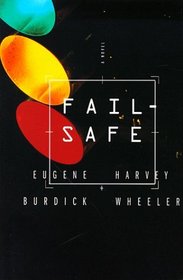Helpful Score: 3
This book is a classic about the Cold War and nuclear catastrophe. I think it might be best read paired up with "On the Beach" (different author). They both address the same topic, but from much different perspectives. In "Fail Safe", we see the horror of war from the point of view of those people trying to stop the horror from happening. In "On the Beach", we get to know a group of individuals who continue to live their lives, as long as possible, after the horror--the life of "everyman", after nuclear war.
Helpful Score: 1
This book was published soon after the Cuban Missile crisis, and highlighted some of the serious fears that were going through American's heads. This book is based on one of the major fears,which was a fear of "accidental" bombings, or attacks. And, that accidental attack in the book is a result of another of the fears, which was that computers controlled too much, and that there was too much room for error. The reasons in this book really made it seem more realistic, and it made it chilling to think that the same could very well happen today.
I enjoyed this book. I recommend it for those that like 'what-if' scenarios. The writing is a bit dry for my taste but it was an easy read. The characters seem to have the same traits and demeanor, which I found to be odd. The outcome was surprising to me but it definitely made me wonder. I wont go into details about the book because you can read that in a description and it is straight forward.
A story that is very readable, even in the context of a post-Cold War world; after all, we still have the weapons, don't we? The novel has a very similar structure to the famous book Burdick co-wrote with William Lederer, "The Ugly American." It also mirrors "Seven Days in May," another book centered around men of power in Washington, trying to resolve a crisis with a doomsday scenario quickly approaching, each chapter devoted to a different character's attempts to avert the disaster. The style is spare and direct - no flowery attempts to spice up the prose; like the mission of the men in the story, it has a simple goal that is immediate and informs while drawing a very real, complex problem.




